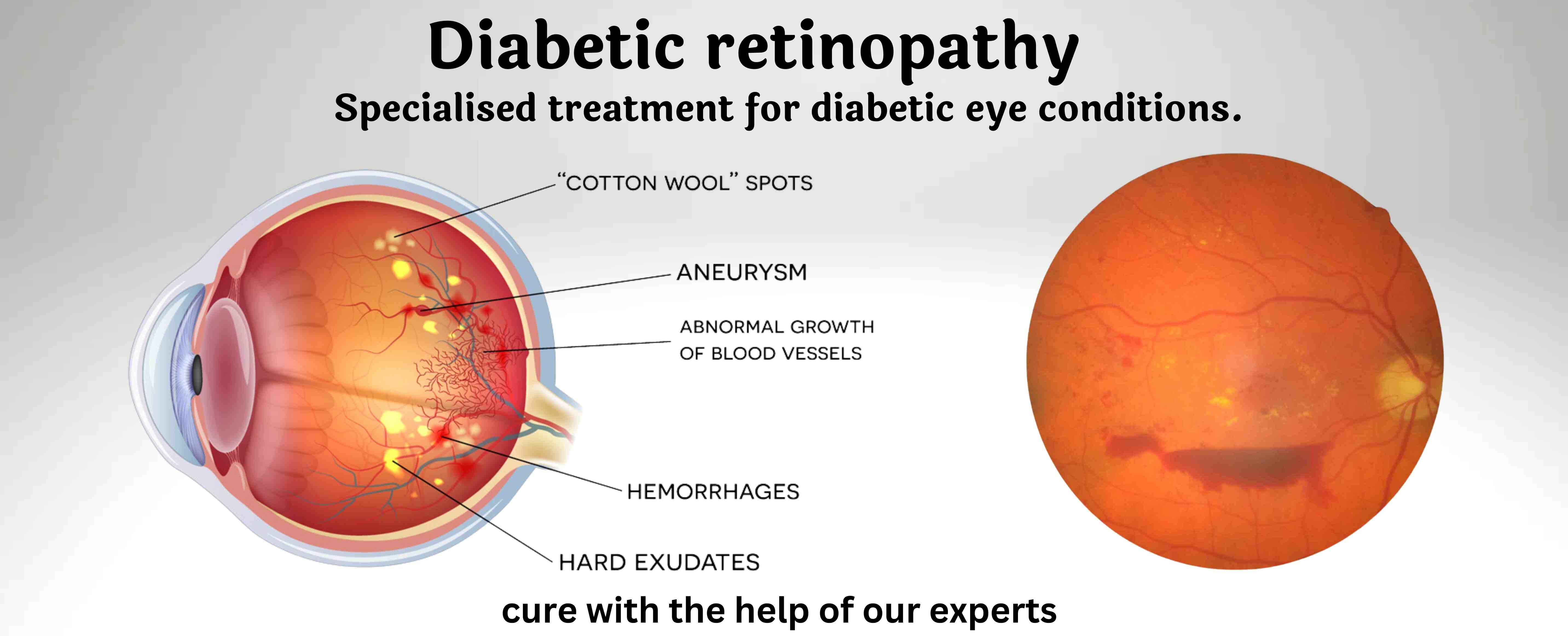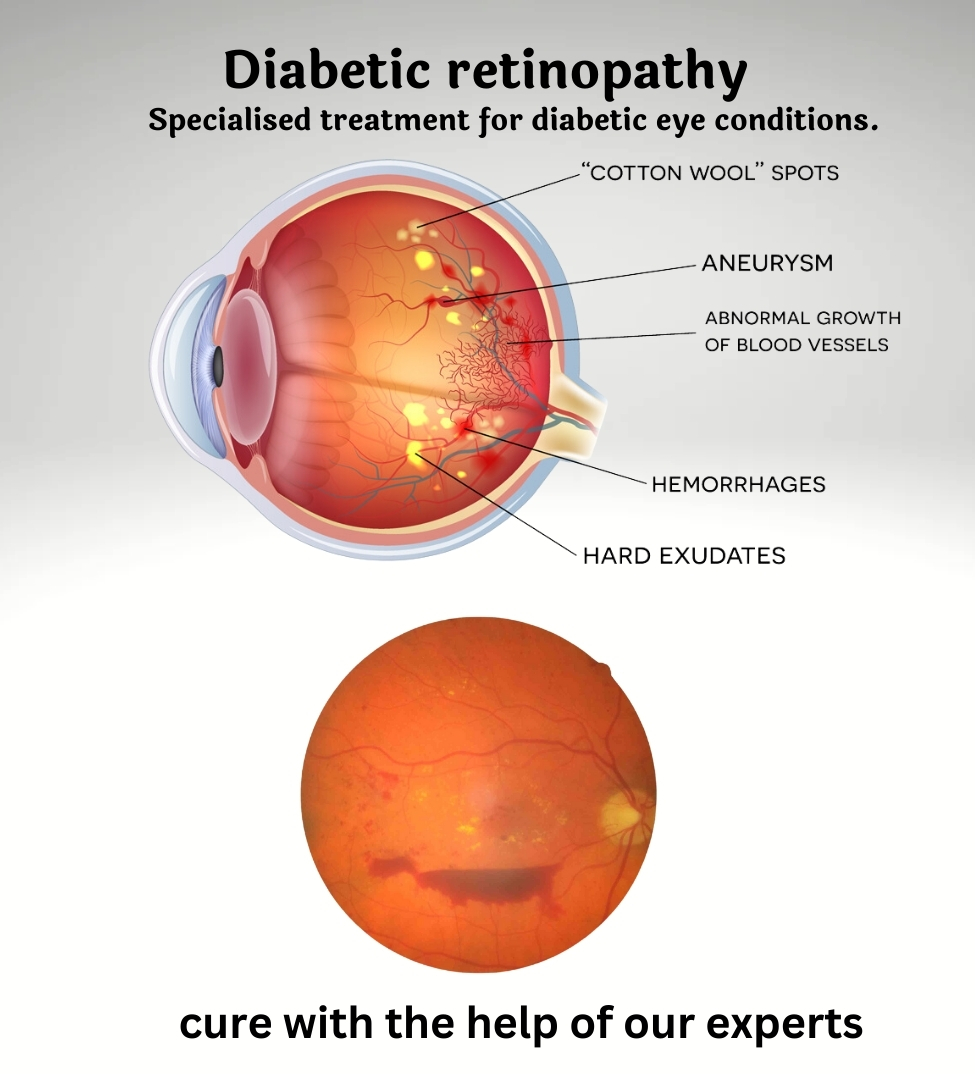

Diabetic Retinopathy Care in Virar, Nallasopara, and Vasai
What is Diabetic Retinopathy?
Diabetic Retinopathy is a diabetes complication that affects the eyes, caused by damage to the blood vessels of the light-sensitive tissue at the back of the eye (retina).

The common questions asked by patients to their eye doctors.
In the early stages, diabetic eye problems often don't have any symptoms. However, some symptoms include:
- Blurry vision
- Seeing double
- Difficulty seeing at night
- Floaters, which are circles or lines that flash in your vision
- Pain or discomfort in or around your eyes
- Dryness or itchiness in your eyes
- Light sensitivity
To prevent diabetic eye problems, you can:
- Maintain good control of your blood sugar, blood pressure, and cholesterol
- Don't smoke
- Get regular eye exams by an ophthalmologist or optometrist who specializes in treating people with diabetes
Your doctor may treat diabetic eye problems with anti-VEGF medicines, which can stop fluid leaks and abnormal blood vessel growth. These medicines are injected into your eyes during office visits.
If left untreated, diabetic eye problems can lead to scars forming in the back of the eye, and bleeding in the blood vessels may increase or worsen.
Symptoms of Diabetic Retinopathy
Causes of Diabetic Retinopathy
Our Expert Diabetic Retinopathy Care in Virar, Nallasopara, and Vasai
MM Eye Care offers specialized care for diabetic retinopathy, including advanced diagnostic techniques like fluorescein angiography and Optical Coherence Tomography (OCT) to monitor the progression of the disease. Our treatments include laser therapy (focal and scatter laser), anti-VEGF injections, and vitrectomy surgery, aiming to preserve vision and prevent further damage.